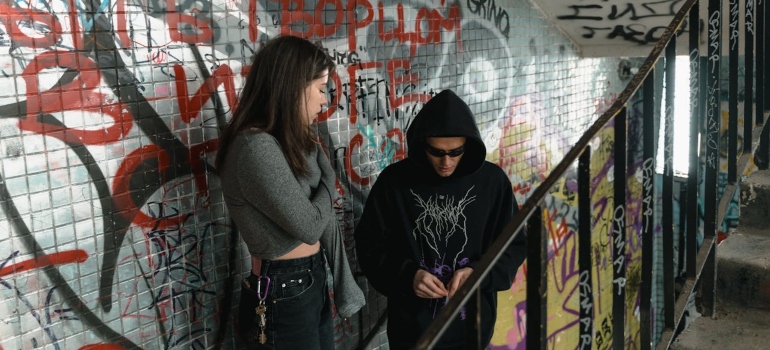Addiction recovery is a lifelong process that comes with setbacks and victories. Among the most significant challenges is the risk of relapse. For many, recognizing addiction relapse warning signs early can mean the difference between maintaining sobriety and returning to old habits. Relapse isn’t a failure—it’s an opportunity to reassess and strengthen recovery strategies. Understanding the triggers and patterns of relapse helps individuals and their loved ones take proactive steps. Specifically, addiction treatment centers in West Virginia offer personalized, evidence-based approaches to recovery that address these challenges head-on. We will walk you through the stages of relapse, the symptoms to watch for, and how to build a relapse prevention plan to ensure lasting sobriety.
Understanding Relapse in Addiction Recovery
Relapse doesn’t happen overnight. It’s a gradual process that unfolds in stages, often beginning with subtle emotional shifts and progressing to physical substance use. Relapse is common—studies show that between 40% and 60% of people in recovery will experience it at some point. This doesn’t erase their progress but shows why staying alert is so important.

What Are the Three Stages of Relapse?
Each stage of relapse presents unique challenges and warning signs. Understanding these stages can help prevent a setback from escalating.
Emotional Relapse
In this initial stage, individuals may not actively think about using substances, but their emotional state sets the groundwork for potential relapse. Early indicators include:
- Increased irritability or restlessness.
- Frequent mood swings.
- Isolation from loved ones or support groups.
- Skipping therapy sessions or self-care practices like exercise or mindfulness.
These behaviors often stem from unresolved emotional stress or burnout. Ignoring them can lead to more significant challenges in the next stages.
Mental Relapse
During mental relapse, individuals experience an internal struggle. They begin to weigh the pros and cons of using substances again. Some common signs include:
- Romanticizing past substance use or focusing on the “good times.”
- Fantasizing about using drugs or alcohol as a way to escape stress.
- Rationalizing why using “just once” might not hurt.
- Actively seeking out people or places associated with past substance use.
This stage is critical. Recognizing and addressing these thoughts with tools like cognitive behavioral therapy for substance use disorders can prevent progression.
Physical Relapse
Physical relapse occurs when a person begins using drugs or alcohol again. This is the final and most visible stage of relapse, often following unchecked emotional and mental struggles. It’s important to note that physical relapse rarely happens out of the blue—it’s usually the result of ignoring earlier signs of drug relapse or dismissing the need for support. Addressing the emotional and mental stages promptly can prevent this final step and help individuals get back on track.

Early Warning Signs of Relapse
Spotting early warning signs of relapse is the best way to prevent it. These signs often appear as subtle changes in behavior, attitude, or routines. At first, they might seem harmless, like missing a therapy session or feeling unusually stressed, but they can escalate quickly if left unchecked. Recognizing and addressing these shifts early can stop relapse in its tracks and reinforce the progress made during recovery. Staying vigilant about these indicators is an important step in maintaining sobriety.
What Are the Symptoms of Early Relapse?
The first signs often involve small shifts in daily habits and emotional well-being. These might seem insignificant but can quickly snowball into larger issues. Some symptoms include:
- A lack of focus on recovery routines, such as skipping support meetings or therapy.
- Avoiding accountability partners or trusted friends.
- Irritability, anxiety, or sudden mood changes.
- Resentment toward loved ones offering support.
When these behaviors emerge, it’s necessary to take them seriously. These signs don’t mean relapse is inevitable, but they signal a need for intervention.
What Are the Five Determinants of Relapse?
Understanding what causes relapse helps individuals and their loved ones stay prepared. The most common determinants are:
- Triggers: People, places, or situations linked to past substance use can ignite cravings. For example, visiting a bar might trigger alcohol relapse signs, while seeing old friends could lead to drug relapse signs.
- Poor stress management: Without healthy outlets for stress, individuals may revert to substances as a coping mechanism.
- Lack of support: Isolation increases the risk of relapse. Recovery thrives when surrounded by a strong network of friends, family, and support groups.
- Mental health challenges: Conditions like depression, anxiety, or trauma can make sobriety harder to maintain. Additionally, dialectical behavior therapy for addiction addresses these underlying issues.
- Overconfidence in recovery: Believing that addiction is “cured” can lead to skipping therapy or neglecting self-care, opening the door to relapse.
How Loved Ones Can Help Spot Addiction Relapse Warning Signs
Loved ones play one of the most important roles in supporting recovery and spotting addiction relapse signs early. They are often the first to notice subtle changes in behavior, mood, or habits that indicate potential relapse. Offering consistent, non-judgmental support can help individuals feel understood and encouraged to stay on their recovery path. By staying attentive and informed, loved ones can intervene before a full relapse occurs.

Behavioral and Emotional Changes
Behavioral and emotional changes often signal that someone is struggling with their sobriety. Pay attention to the following warning signs:
- Social withdrawal: Avoiding family, friends, or support groups.
- Mood swings: Increased irritability, anger, or feelings of hopelessness.
- Neglecting responsibilities: Skipping work, school, or personal commitments.
- Financial troubles: Borrowing money or struggling to manage finances.
- Reconnecting with old habits: Spending time with people or visiting places linked to past substance use.
These changes might seem unrelated to addiction at first, but they often reflect internal struggles tied to recovery. Loved ones should approach these signs with curiosity and concern rather than accusations, ensuring their support feels constructive.
In addition, look for shifts in hobbies and interests. A lack of enthusiasm for activities once enjoyed, or secretive behavior around their schedule may indicate growing emotional or mental stress related to recovery challenges.
Fostering Open Communication
Open and honest communication is the cornerstone of supporting someone in recovery. A non-judgmental environment helps individuals feel safe sharing their struggles. Here’s how loved ones can foster better communication:
- Ask open-ended questions: Start conversations with, “How have you been feeling about your recovery?” or “What’s been the hardest part of this week for you?”
- Practice active listening: Avoid interrupting or jumping to conclusions. Instead, focus on understanding their emotions.
- Reassure them: Let them know it’s okay to have setbacks and that seeking help is a sign of strength.
By maintaining an open dialogue, you help them process emotions before they turn into destructive behaviors. Encouraging recovery-related activities, such as attending group therapy for addiction, can also provide additional support.
In addition, loved ones can show commitment by offering to join support meetings or therapy sessions. This reinforces solidarity and ensures you stay informed about the person’s progress and challenges. Creating a supportive environment helps individuals feel less isolated and more motivated to stay committed to their sobriety. With vigilance and compassion, loved ones can make all the difference in preventing relapse.
Seeking Professional Help to Prevent Relapse
Professional help is often the most effective way to address the warning signs of relapse addiction and strengthen recovery efforts. Addiction treatment centers in West Virginia offer comprehensive care tailored to the unique challenges of relapse prevention. These facilities provide individuals with the tools and strategies needed to manage triggers and maintain sobriety.

Evidence-Based Therapies
Treatment centers use a range of evidence-based therapies to address the root causes of relapse. These therapies help individuals develop healthier thought patterns and coping mechanisms:
- Cognitive Behavioral Therapy: This therapy teaches individuals how to identify and challenge negative thoughts that lead to cravings, replacing them with positive strategies for maintaining sobriety.
- Dialectical Behavior Therapy: DBT focuses on emotional regulation and mindfulness, helping individuals manage stress and reduce the risk of relapse.
- Group Therapy: Sharing experiences in a group setting fosters accountability and builds a strong support network for sustained recovery.
- Motivational Interviewing (MI): MI helps individuals explore and strengthen their motivation for staying sober. By addressing ambivalence and setting meaningful goals, this approach empowers individuals to take ownership of their recovery journey.
These therapies provide the foundation for addressing both the psychological and behavioral aspects of addiction relapse.
Specialized Treatment Programs
For many, recovery involves targeted care that addresses the specific challenges associated with their substance use. For example:
- Those undergoing benzo detox benefit from medically supervised programs that safely manage withdrawal symptoms and reduce the risk of complications. This structured approach helps individuals regain physical stability while focusing on long-term sobriety.
- Individuals in cocaine addiction rehab often require specialized strategies to combat intense psychological cravings and high relapse risk. Programs tailored to cocaine recovery teach coping techniques that minimize exposure to triggers and reinforce healthy routines.
These specialized programs ensure that each individual receives care designed for their unique recovery journey.
Localized Support
In West Virginia, a rehab center Huntington WV provides community-focused care that emphasizes connection and accountability. These centers not only offer evidence-based therapies but also prioritize building local networks of support. Staying involved in a recovery-oriented community reduces isolation and strengthens commitment to sobriety.
Building a Relapse Prevention Plan
A strong relapse prevention plan is a very important tool in maintaining sobriety and navigating the challenges of recovery. It serves as a roadmap, helping individuals anticipate triggers, respond effectively to stress, and reinforce their commitment to a healthier life. While the risk of relapse can never be completely eliminated, a well-constructed plan minimizes that risk and empowers individuals to take control of their recovery journey.
Key Components of a Strong Relapse Prevention Plan
Developing a relapse prevention plan involves several steps, each aimed at addressing the individual’s unique needs and vulnerabilities. Here are the most valuable components:
Therapy and Counseling
Regular therapy sessions are the cornerstone of any relapse prevention plan. These sessions help individuals process their emotions, work through challenges, and stay accountable to their recovery goals.

Building a Support Network
A reliable support system is essential for preventing relapse. This includes:
- Attending support group meetings, such as Alcoholics Anonymous (AA) or Narcotics Anonymous (NA).
- Relying on accountability partners who can offer guidance and encouragement.
- Staying connected with friends and family who support sobriety.
Coping Strategies for Triggers
Triggers are one of the most common determinants of relapse. A good prevention plan should identify specific triggers—whether they are emotional, social, or environmental—and outline strategies for managing them. Examples include:
- Practicing mindfulness or meditation to reduce stress.
- Developing a list of calming activities, such as taking a walk, journaling, or listening to music.
- Creating a step-by-step action plan for situations where cravings arise, like calling a sponsor or leaving a high-risk environment immediately.
- Focus on life satisfaction. A plan that prioritizes life satisfaction in preventing relapse is more effective. When individuals find joy and purpose in their daily lives, the urge to return to substances decreases significantly.
Daily Routines and Goals
Staying busy with positive, recovery-focused activities helps individuals avoid idle time, which can lead to cravings. A relapse prevention plan should encourage:
- Establishing a consistent daily routine with time allocated for work, hobbies, exercise, and self-care.
- Setting short-term and long-term goals, such as rebuilding relationships, pursuing education, or improving physical health.
- Rewarding for milestones, like celebrating each month of sobriety with a meaningful activity.

Recognizing Addiction Relapse Warning Signs: The Key to Sustained Sobriety
Relapse doesn’t signify failure—it’s a chance to learn and grow. By spotting addiction relapse warning signs early and seeking professional help, individuals can protect their progress and strengthen their recovery journey. Harmony Ridge Recovery Center WV provides invaluable resources to guide people through the toughest moments. Sobriety is a daily commitment. With the right tools, support, and mindset, long-term recovery is always within reach. Stay vigilant, seek help when needed, and remember—you’re never alone on this journey.



